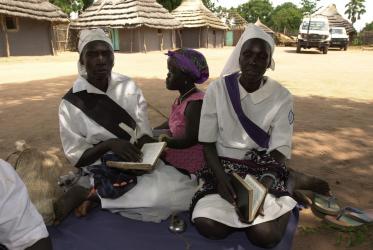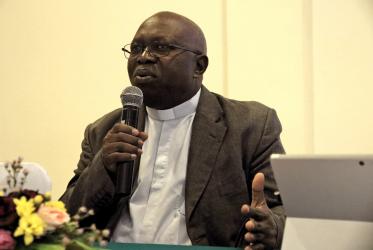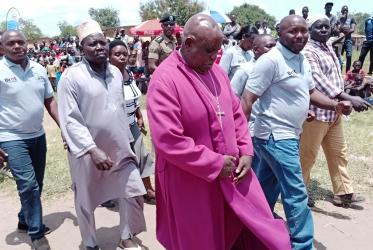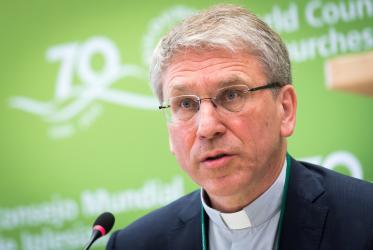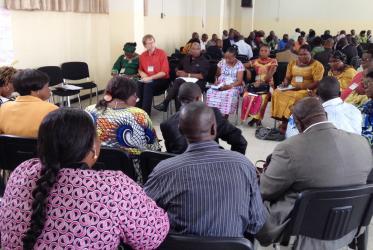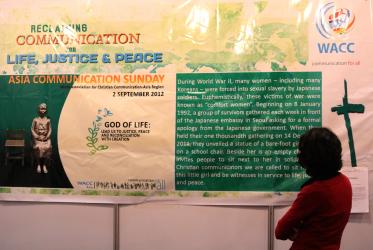Displaying 1 - 20 of 20
Young Africans are eager to grapple with challenges
09 January 2020
South Sudan Council of Churches shares Christmas message of peace
16 December 2019
South Sudan Council of Churches: peace “is a question of the heart”
11 November 2019
Religious leaders from South Sudan cherish those who host refugees
23 September 2019
WCC condemns killing of Catholic priests in South Sudan, Cameroon
27 November 2018
WCC congratulates 2018 Nobel Peace Prize laureates
05 October 2018
Film recognized for highlighting human rights in DRC
18 April 2018
WCC convenes consultation on the DRC political instability
09 December 2016
WCC condemns violent demonstrations in Kinshasa
22 January 2015
Hearing many voices for justice and peace
07 November 2013

